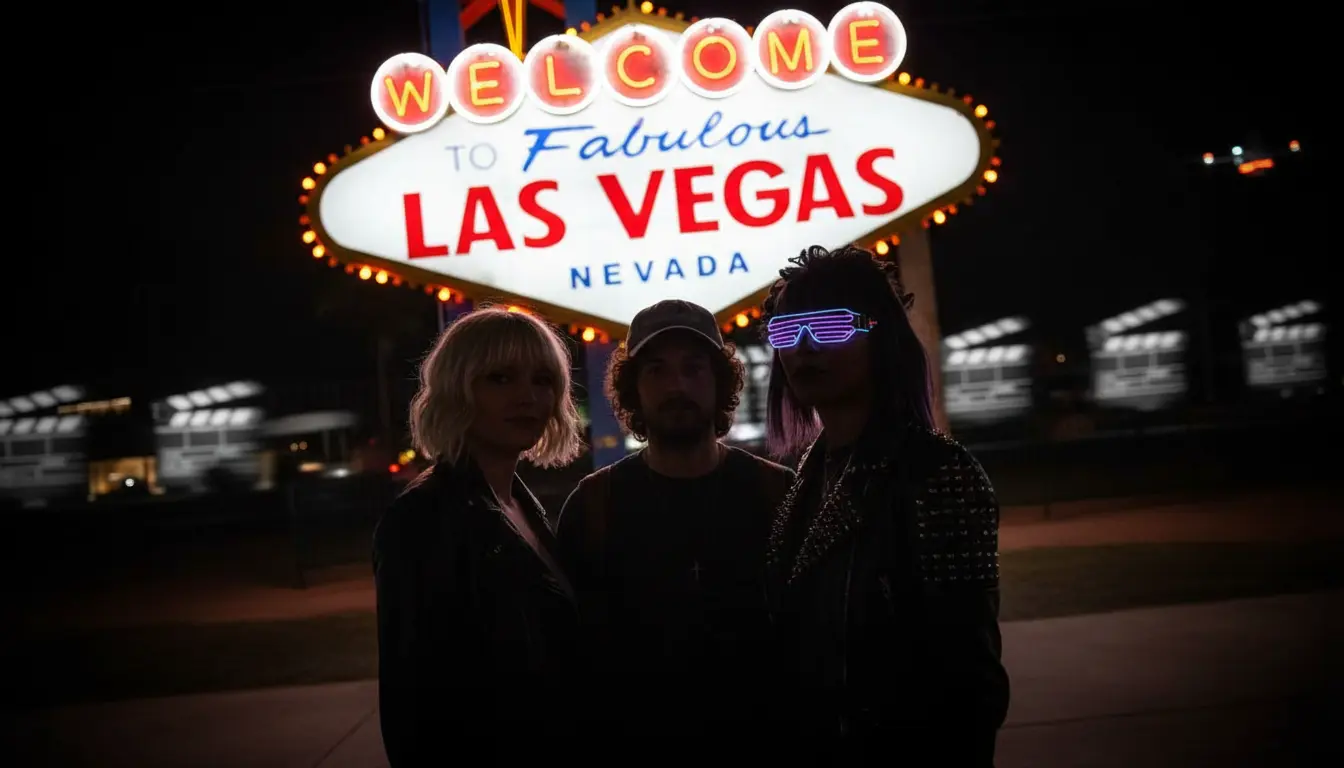Las Vegas has long dazzled as Hollywood’s backdrop—think wild bachelor parties and slick casino heists—but could it soon be rolling out the red carpet as the film industry’s next production powerhouse? That depends on a high-stakes battle over billions in tax credits, pitting big studios, labor unions, and public service advocates in a cinematic debate worthy of a blockbuster twist.
The Glittering Pitch: Turning Vegas Into a Production Mecca
In the neon-lit heart of Nevada, labor unions are rallying for more than just good jobs on the Strip. Their mission: convince state officials to greenlight up to $95 million in tax credits for Sony Pictures Entertainment and Warner Bros. Discovery. The prize? A massive new film production facility in the booming Vegas suburbs—an investment unions say could usher in 19,000 construction jobs and turbocharge the local economy.
Tommy White, the dynamic business manager and secretary-treasurer of Laborers’ International Union of North America, Local 872, isn’t shy about the stakes. “We believe if we can get the public behind us, we’ll be able to get the legislators to understand what a big change this can bring to southern Nevada,” White said, hoping to turn skepticism into support.
Backing this drive is a united front of over a dozen trade unions. They’ve banded together as Nevada Jobs Now, a political action committee stocked with over $1 million for ads and commercials, all aimed at mustering public enthusiasm. Because in this kind of poker game, having the crowd on your side might just be the ace in the hole.
Bigger Bets: Why Studios Want the Deal
But before the cameras start rolling, a monster investment is required. According to David O’Reilly, CEO of Howard Hughes Holdings—the brains behind the so-called Summerlin Studios proposal—$400 million needs to be poured into studio construction, plus $1.8 billion into shops and restaurants in a master-planned neighborhood on Las Vegas’s west side. Sony and Warner Bros. would be on the hook for spending a whopping $4.5 billion over the next 15 years.
And studios aren’t just in it for the glitz. As O’Reilly put it, “There would be no reason for Sony and Warner to film in Nevada when they can get tax credits in 20 other states or around the globe.” In other words: when it comes to blockbusters, location is dictated by economics, not just dramatic skylines. If Las Vegas wants to play in the big leagues, it’ll have to ante up like Atlanta did before it.
Atlanta: Hollywood of the South or Cautionary Tale?
Industry veterans point to Georgia’s capital as a case study. Since 2008, Atlanta has transformed into “the Hollywood of the South,” hosting the likes of Marvel flicks and Netflix’s “Stranger Things.” According to Stephen Weizenecker, a local attorney who helped shape Georgia’s film tax credit program, the city now draws tourists eager to visit famous movie locations—proving that filming can boost travel, not just employment.
But the bill comes due: Georgia was projected to mail out $1.35 billion in credits in 2024 alone. Audit expert Carlianne Patrick of Georgia State University calculated that, on average, Georgia collects just 17 cents in tax revenue for every dollar the state spends on those lavish incentives. Flashy productions, sure, but not exactly a jackpot for state coffers.
The Critics: Rolling the Dice on Public Priorities
While labor leaders envision a tourism surge à la major sports teams, not everyone is cheering. The American Federation of State, County and Municipal Employees (AFSCME) has joined other Nevada groups to urge Governor Joe Lombardo not to include the film tax credit proposal in the state’s upcoming special session. These voices argue that flashy incentives for studios have a hidden cost: less funding for crucial services.
As a letter to the governor put it:
- « Every dollar we lock into a corporate handout is a dollar we can’t put toward our rainy-day readiness, public education, health care, wildfire mitigation, housing, and the basic services Nevadans rely on when times get tight. »
Jared Kluesner, a psychiatric nurse and AFSCME member, echoes the sentiment: while he wants to see job creation, he argues it shouldn’t come at the expense of mental health care and essential state resources. “If they’re going to do it at the cost of public services and funds that should be allocated to state workers, then that’s not really solving any problems,” he said.
As Governor Lombardo prepares to call lawmakers back to Carson City, the plot thickens. Will Las Vegas double down to become Hollywood’s next glittering empire, or will concerns about fiscal prudence and public welfare cue the closing credits on the grand plan? Stay tuned—what happens in Vegas might soon shape the future of American filmmaking.

John is a curious mind who loves to write about diverse topics. Passionate about sharing his thoughts and perspectives, he enjoys sparking conversations and encouraging discovery. For him, every subject is an invitation to discuss and learn.






